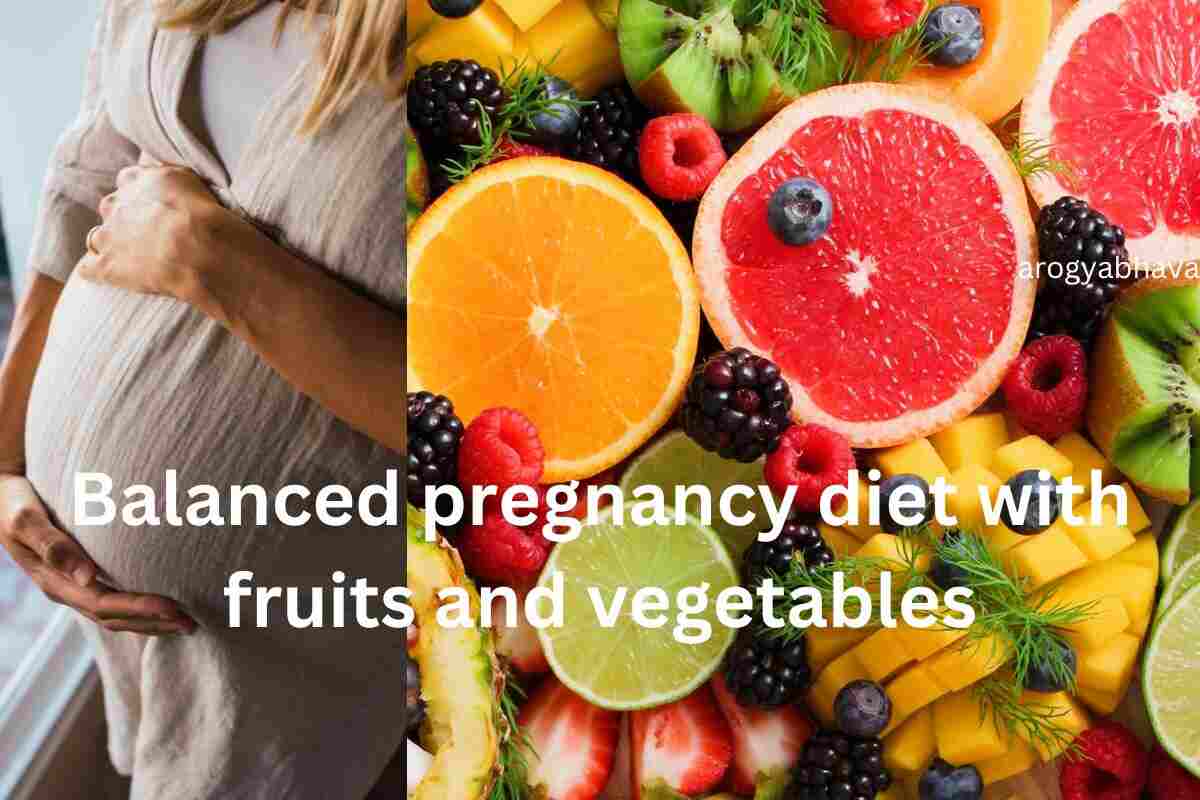Nourishing Your Pregnancy: Essential Fruits and Vegetables

Balanced pregnancy diet with fruits and vegetables
As with any dietary changes during pregnancy, it’s essential to seek personalized advice from your healthcare provider to ensure you’re meeting your individual nutritional needs. A balanced and varied diet, along with proper prenatal care, supports a healthy pregnancy and delivery.
Best fruits and vegetables for pregnancy
Here’s a list of some of the best fruits and vegetables to consume during pregnancy for a healthy delivery, along with considerations for each:
Oranges
Oranges are an excellent source of vitamin C, which supports immune function and helps the body absorb iron. The natural sugars in oranges provide energy, and their fiber content aids digestion. However, consume them in moderation to manage blood sugar levels.
Bananas
Bananas are rich in potassium, which helps maintain fluid and electrolyte balance. They also provide vitamin B6, which supports brain development. Their natural sweetness makes them a satisfying and energy-boosting snack.
Spinach
Spinach is packed with folate, which is crucial for fetal development and reducing the risk of birth defects. It also contains iron and fibre, helping prevent anaemia and supporting digestive health.
Also Read: Naturopathy: Benefits of Eating Raw Spinach
Broccoli
Broccoli is a powerhouse of nutrients, including vitamin K, vitamin C, folate, and fiber. It supports bone health, immune function, and overall growth.
Avocado
Avocado is rich in healthy fats, particularly monounsaturated fats, which are beneficial for the baby’s brain and nervous system development. It also provides potassium and folate.
Sweet Potatoes
Sweet potatoes are high in beta-carotene, which the body converts into vitamin A. Vitamin A is essential for vision, immune function, and skin health. They’re also a good source of fiber.
Berries (Blueberries, Strawberries, Raspberries)
Berries are packed with antioxidants, particularly vitamin C and phytochemicals. They promote immune function, reduce inflammation, and contribute to healthy skin.
Mangoes
Mangoes are rich in vitamins A and C, which support vision, immune health, and collagen synthesis. They also provide natural sugars for energy.
Pomegranates
Pomegranates are a good source of antioxidants, especially punicalagin and anthocyanins, which promote heart health and reduce inflammation.
Carrots
Carrots are high in beta-carotene, which supports healthy vision and immune function. They also provide fiber for digestive health.
Remember these considerations while consuming fruits and vegetables during pregnancy:
- Variety: Aim for a diverse range of fruits and vegetables to ensure you’re getting a broad spectrum of nutrients.
- Moderation: While fruits are generally healthy, consume them in moderation to manage sugar intake.
- Wash Thoroughly: Wash all fruits and vegetables thoroughly to remove any potential contaminants.
- Hydration: Fruits and vegetables with high water content contribute to hydration, an essential factor during pregnancy.
- Consult Your Healthcare Provider: Always consult your healthcare provider before making significant changes to your diet during pregnancy.
Can we eat litchi during pregnancy?
Yes, litchi (also spelt lychee) can be consumed during pregnancy, but it’s important to do so in moderation and with certain considerations in mind.
Litchi is a tropical fruit that is rich in vitamins, minerals, and antioxidants, making it a potentially nutritious addition to a pregnant woman’s diet. However, there are a few points to keep in mind:
Moderation
While litchis can be a healthy choice, they are also relatively high in natural sugars. Pregnant women should consume them in moderation to avoid excessive sugar intake.
Allergies
Some individuals may be allergic to litchis or other fruits. If you have a known allergy to litchis or any other fruits, it’s best to avoid them during pregnancy.
Blood Sugar Control
Pregnant women who have gestational diabetes or are at risk of developing gestational diabetes should monitor their blood sugar levels closely when consuming litchis. The fruit’s sugar content could impact blood sugar levels.
Hydration
Litchis have a high water content, which can help with hydration during pregnancy. Staying properly hydrated is important for overall health and well-being.
Nutrient Content
Litchis are a good source of vitamin C, which is important for immune function and collagen synthesis. They also contain dietary fiber and various antioxidants that can be beneficial during pregnancy.
Digestive Health
The dietary fiber in litchis can help support healthy digestion, which is important during pregnancy when digestive issues can arise.
It’s advisable to consult with your healthcare provider before making any significant changes to your diet during pregnancy. They can provide personalized guidance based on your individual health and any specific conditions you may have.